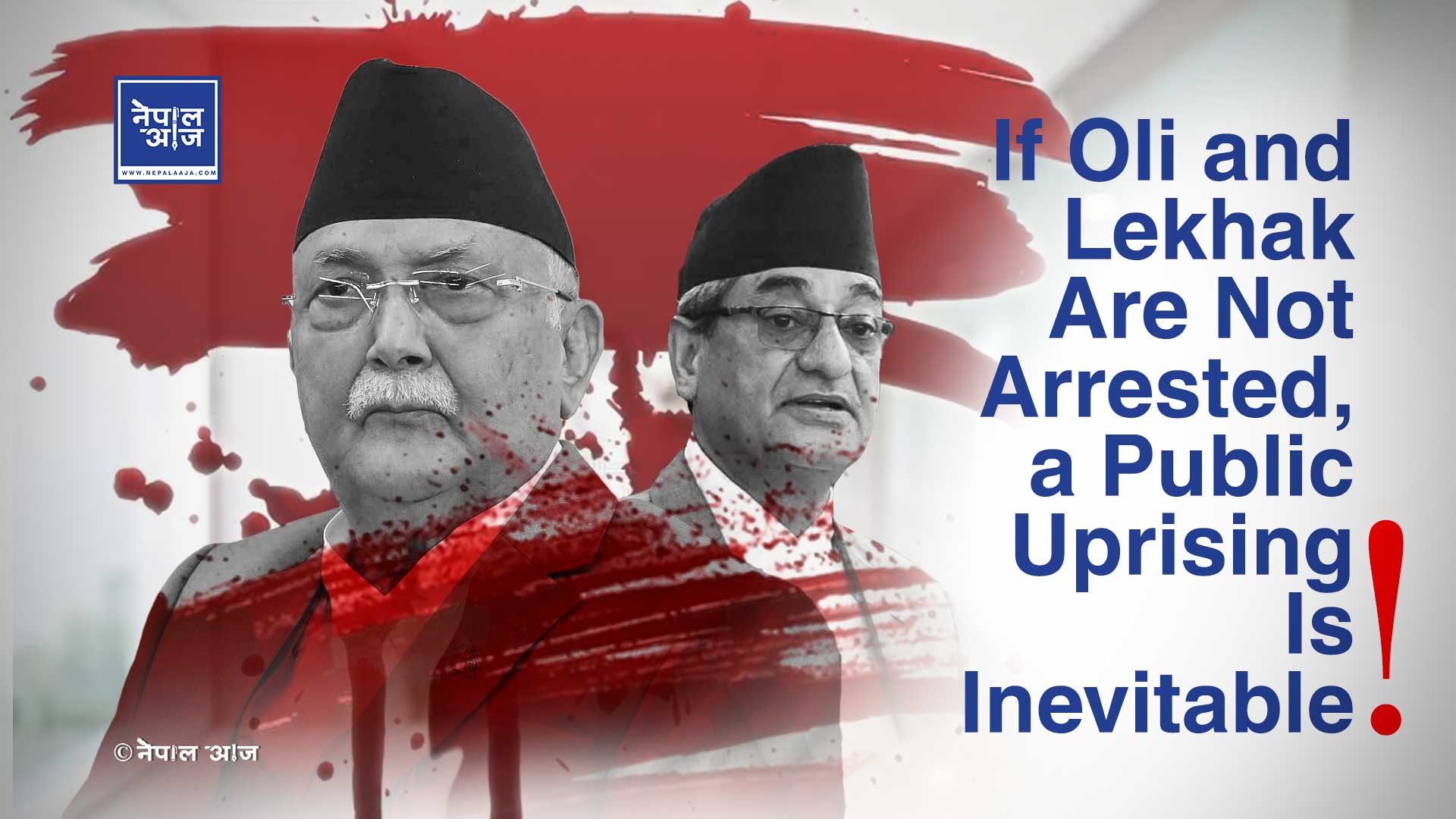If Oli and Lekhak Remain Unchecked, Nepal Will Sink — Arrest Them Now!

In Nepal’s political landscape, two figures have steadily undermined governance, policy, and public trust for decades—K.P. Sharma Oli and Ramesh Lekhak. Many Nepalis now compare Oli to the invasive weed banmara (Chromolaena odorata) and Lekhak to jalakumbhi (water hyacinth), because both have spread through the nation’s political and institutional structures much like these destructive species: appearing lush and harmless on the surface, but silently choking the system from within.
The comparison between Oli and banmara is more than a metaphor—it reflects a political reality. Banmara initially looks appealing with its soft, milky leaves, but eventually wipes out local vegetation, crops, and ecosystems. Oli emerged in the Communist Party of Nepal–UML with similar allure, championing “nation-building” slogans and delivering fiery speeches. Over time, he sidelined alternative leadership, concentrated power in his hands, and left little political space for others. During the Gen-Z uprising, public anger nearly uprooted this “banmara.” In the final days of his premiership, Oli had to flee by army helicopter to escape a furious youth movement. Now, with the situation normalized, he is trying to spread again—issuing warnings and giving political speeches that signal a clear intent to return to power through old tactics.
At a recent party gathering in Gunduk, Bhaktapur, Oli mocked the current “interim” government over passport control rumors, declaring, “Do they think we will hand over the country to this noisy government and flee abroad? We are the ones who will build this nation.” But the public disagrees. They argue that instead of building, he consumed the nation like an invasive weed. Promises of trains, household gas, development, and prosperity never materialized. He has never admitted his failures nor shown any inclination to retire from politics—on the contrary, he remains active in power plays.
Ramesh Lekhak’s role is likened to jalakumbhi, a far more insidious threat. Water hyacinth spreads rapidly across water surfaces, depletes oxygen, kills fish, and clogs irrigation and hydropower systems—once established, it poisons the entire aquatic ecosystem. Similarly, Lekhak, during his tenure as Home Minister, deeply entrenched himself in the state apparatus. Under his leadership, sensitive decisions and repressive orders during the Gen-Z protests led to the deaths of numerous Nepali citizens. He has neither accepted political responsibility nor issued any apology to the public. Like water hyacinth, his roots in the political ecosystem run deep, making superficial political changes insufficient to remove his influence.
Today, from cities to villages, from ordinary citizens to intellectuals, a united public voice is rising: these “banmara” and “jalakumbhi” figures must face legal accountability. This is not the demand of a single party—it is the shared demand of every sovereign Nepali citizen. The public is clear: these leaders have neither apologized nor retired; instead, they are actively conspiring to return to power. As a result, there is a growing and urgent call for their immediate arrest and detention to allow impartial investigation.
Neither Oli nor Lekhak has issued a direct response, but their political maneuvers clearly indicate ambitions to reclaim power. The public, however, is no longer willing to accept a return to the old political swamp. Defending Nepal’s democracy and governance is no longer a matter of slogans—it requires decisive legal and political action to hold such invasive political species accountable and clean the nation’s political environment.




![From Kathmandu to the World: How Excel Students Are Winning Big [Admission Open]](https://nepalaaja.com/img/70194/medium/excel-college-info-eng-nep-2342.jpg)
